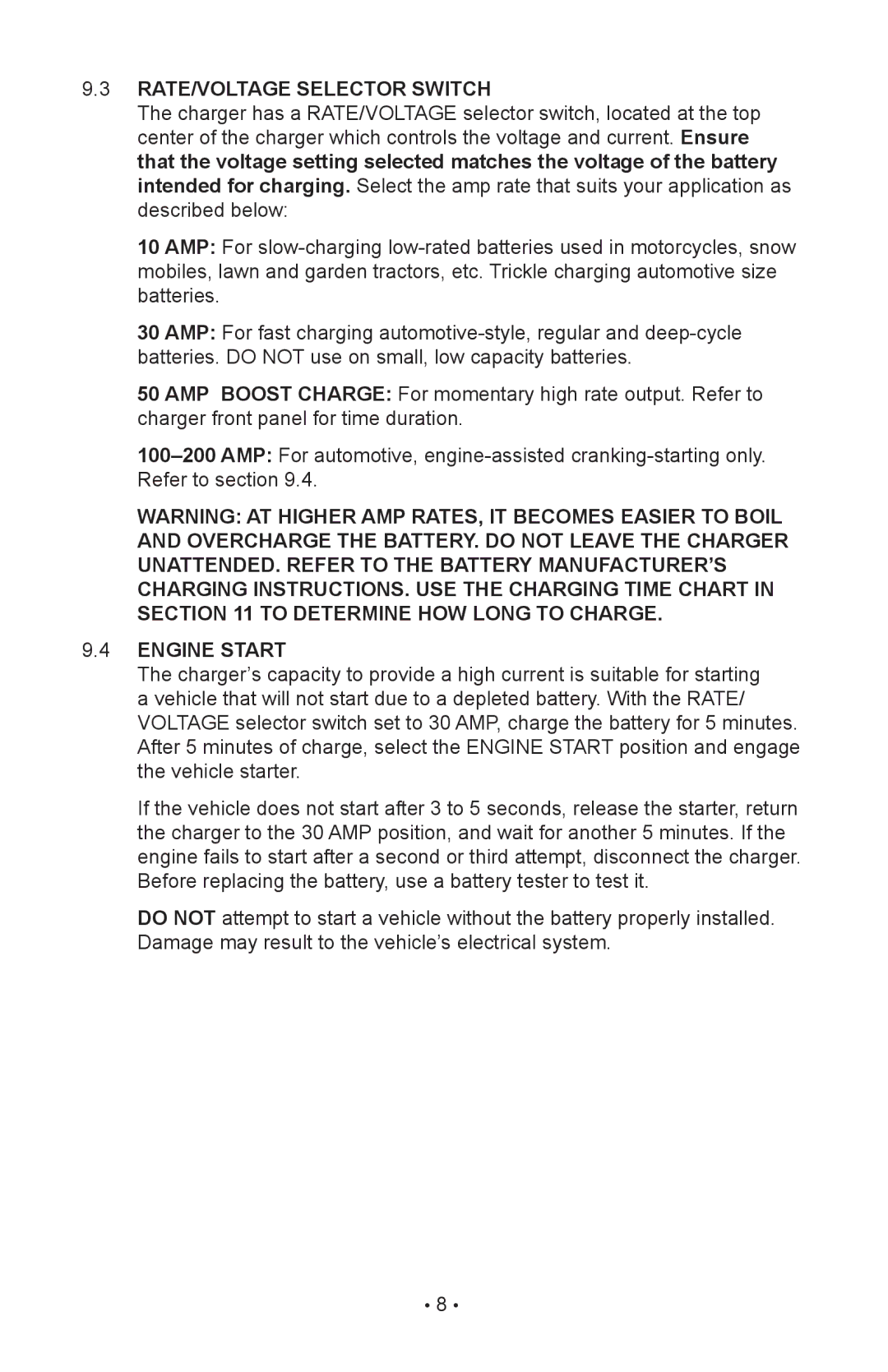9.3RATE/VOLTAGE Selector Switch
The charger has a RATE/VOLTAGE selector switch, located at the top center of the charger which controls the voltage and current. Ensure that the voltage setting selected matches the voltage of the battery intended for charging. Select the amp rate that suits your application as described below:
10 AMP: For
30 AMP: For fast charging
50 AMP BOOST CHARGE: For momentary high rate output. Refer to charger front panel for time duration.
Refer to section 9.4.
WARNING: At higher amp rates, it becomes easier to boil and overcharge the battery. Do not leave the charger unattended. Refer to the battery manufacturer’s charging instructions. Use the Charging Time Chart in section 11 to determine how long to charge.
9.4ENGINE START
The charger’s capacity to provide a high current is suitable for starting a vehicle that will not start due to a depleted battery. With the RATE/
VOLTAGE selector switch set to 30 AMP, charge the battery for 5 minutes.
After 5 minutes of charge, select the ENGINE START position and engage the vehicle starter.
If the vehicle does not start after 3 to 5 seconds, release the starter, return the charger to the 30 AMP position, and wait for another 5 minutes. If the engine fails to start after a second or third attempt, disconnect the charger. Before replacing the battery, use a battery tester to test it.
DO NOT attempt to start a vehicle without the battery properly installed. Damage may result to the vehicle’s electrical system.
• 8 •
